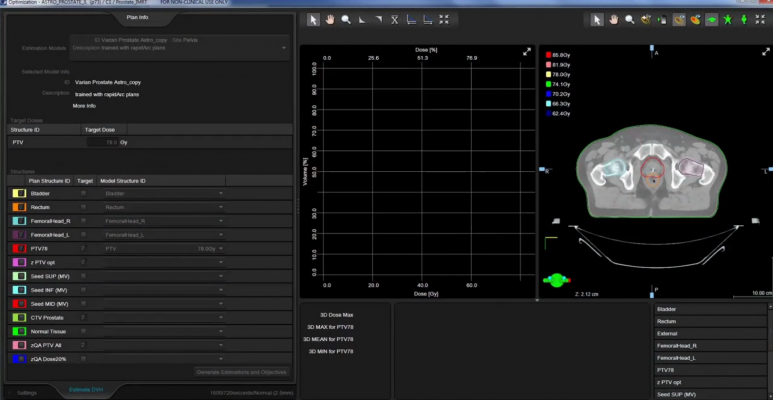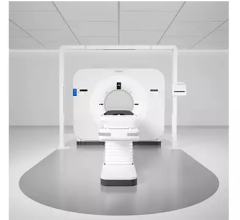
July 22, 2014 — Three teams of medical physicists are slated to make presentations about knowledge-based treatment planning software at the 2014 annual meeting of the American Association of Physicists in Medicine (AAPM) in Austin, Texas. These presenters were involved as consultants or evaluators during the development of RapidPlan treatment planning software, introduced by Varian Medical Systems last September to enhance quality, consistency and efficiency in radiotherapy treatment planning.
Treatment planning for radiotherapy and radiosurgery involves the use of sophisticated computer algorithms that combine anatomical images of the patient along with information about the doctor's goals for tumor coverage and normal tissue sparing, to generate a set of electronic treatment instructions. These instructions "tell" the treatment delivery system how much dose to deliver, from which angles, and how to shape and modulate the beam to arrive at the desired dose distribution.
A team from Duke University in Durham, N.C., and Washington University in St. Louis will demonstrate how tools like RapidPlan make it possible to extract knowledge from past clinical experience and use it to generate mathematical models that expedite the creation of new treatment plans. The mathematical knowledge models greatly reduce the need for current time-consuming, manual trial-and-error processes by providing treatment planners with goals that are achievable for a specific patient's anatomy.
"Using these types of tools has the potential to help reduce variability in treatment planning," said Yves Archambault, Varian product manager. "The idea is to achieve greater quality and consistency, more efficiently."
A team from CancerCare Manitoba in Winnipeg, Canada, will present on the viability of using RapidPlan software to create quality treatment plans for head and neck cancer. The Manitoba team 'trained' the software using a historical database that covered a broad spectrum of head and neck cancer cases normally found in a clinic, according to Archambault. "They found that this approach results in a robust head and neck planning model that can be used for a wide range of clinical cases," he said.
"Knowledge-based planning was able to predict the amount of dose that would have impacted the surrounding organs in a wide range of head and neck cancer clinical cases," said Jorge Alpuche, medical physicist from CancerCare Manitoba and one of the presenters at the AAPM meeting. "This can potentially reduce the time and effort needed to plan head and neck cases in our clinic without compromising the quality of radiation therapy treatments."
"We are gratified to see all of the interest in solutions that promise to make high-quality radiotherapy and radiosurgery more widely available to cancer patients around the world," said Kolleen Kennedy, president of Varian's oncology systems business. "Varian is focused on creating data-driven solutions that leverage advanced informatics, big data and software development to help clinicians deliver high-quality, evidence-based care for their patients."
For more information: www.varian.com


 April 21, 2025
April 21, 2025 








